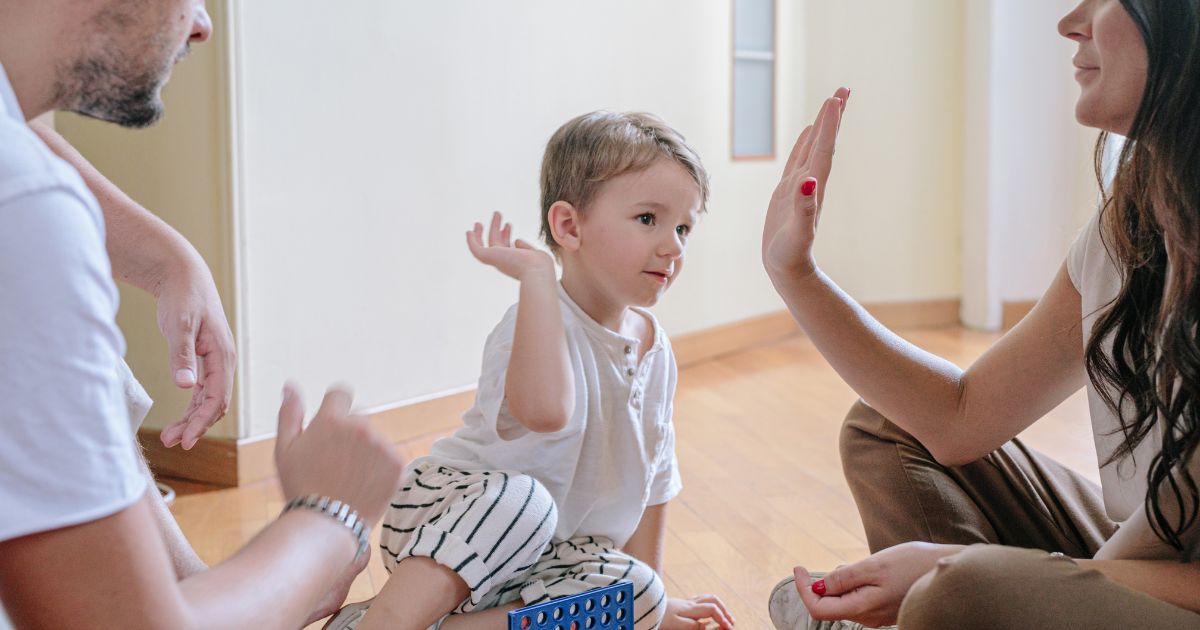
Jellyfish Parenting – Nurturing Independence and Resilience in Growing Minds
Jellyfish Parenting
All you need to know
“Jellyfish parenting” is a way of parenting that lets kids have more freedom and independence. It’s different from more traditional styles like “helicopter parenting” or “tiger parenting.”
The name comes from jellyfish, which float freely. Jellyfish parenting is about being flexible and adaptable. Jellyfish parents create a loving and supportive environment, letting kids explore and learn on their own. This helps kids become resilient, independent, and good at solving problems without always needing their parents.
While jellyfish parenting is good for letting kids be independent, it’s important to find a balance. Too much freedom without some guidance might mean there aren’t enough rules. The best way to parent depends on what each child needs, and parents might change their approach as their child grows.
Autonomy and Independence
Decision-Making – Jellyfish Parenting:
- Age-Appropriate Decision-Making: Jellyfish parents encourage their children to make decisions appropriate to their age and maturity level. This could include choices about clothing, extracurricular activities, or even some aspects of their education.
- Learning from Choices: Children in jellyfish parenting environments learn to take responsibility for their decisions. Positive outcomes reinforce good decision – making, while negative outcomes become valuable learning experiences.
Problem-Solving Skills:
- Encouraging Critical Thinking: Jellyfish parents foster critical thinking skills by allowing their children to solve problems independently. This approach helps children develop problem – solving skills, resilience, and the ability to think through challenges.
- Guidance when Needed: Jellyfish parents support their kids in becoming independent, but they are also there to help when things get tricky. They find a balance between letting their child solve problems on their own and stepping in when needed.
Time Management:
- Balancing Responsibilities: Jellyfish parenting teaches kids to handle their time and tasks. This might mean figuring out how to balance schoolwork, chores, and fun activities.
- Learning from Time Management: Children learn the consequences of procrastination or poor time management, fostering a sense of accountability for their own schedules.
Setting Personal Goals – Jellyfish Parenting:
- Encouraging Goal Setting: Jellyfish parents support their children in setting and pursuing personal goals. Whether these goals are academic, athletic, or creative, children learn the process of setting objectives and working towards them.
- Celebrating Achievements: When kids reach their goals, jellyfish parents celebrate, showing that working hard and not giving up brings good results.
Interpersonal Relationships:
- Navigating Social Situations: Jellyfish parenting allows children to navigate social situations with a degree of independence. This could involve making friends, resolving conflicts, and learning to understand social cues.
- Building Communication Skills: Children in jellyfish parenting environments often develop strong communication skills as they learn to express their needs and opinions confidently.
Coping with Challenges – Jellyfish Parenting:
- Experiencing Challenges: Instead of shielding their children from all challenges, jellyfish parents allow them to face difficulties. This might involve academic struggles, conflicts with peers, or other setbacks.
- Building Resilience: Through these experiences, children learn resilience. They understand that facing challenges is a natural part of life and develop the ability to bounce back from setbacks.
Jellyfish parenting, which emphasizes letting kids do things on their own, helps children learn the skills and mindset to handle life in their own way. This way of parenting helps kids become self – reliant and confident, able to make smart decisions and handle different situations.
Adaptability and Flexibility
Open Communication:
- Encouraging Dialogue: Jellyfish parents foster an environment where open communication is valued. Children feel comfortable expressing their thoughts, feelings, and concerns without fear of harsh judgment.
- Listening Actively: Jellyfish parents actively listen to their children, acknowledging their perspectives and feelings. This open dialogue creates a sense of trust and connection between parent and child.
Supporting Individuality – Jellyfish Parenting:
- Acknowledging Differences: Jellyfish parents recognize and appreciate the individuality of each child. They understand that each child may have unique interests, strengths, and challenges, and they adapt their parenting approach accordingly.
- Flexible Expectations: Instead of rigidly enforcing expectations, jellyfish parents are flexible in their approach, allowing for variations in how each child may excel or struggle in different areas.
Adapting to Change:
- Teaching Resilience: Jellyfish parents model and teach resilience by adapting to changes in life. Whether it’s a change in routine, a move to a new location, or other life transitions, children learn that adaptability is a valuable skill.
- Navigating Uncertainties: Life is full of uncertainties, and jellyfish parents help their children navigate these uncertainties by fostering a mindset that embraces change and challenges.
Problem-Solving Skills – Jellyfish Parenting:
- Encouraging Independence: When faced with challenges, jellyfish parents often encourage their children to independently find solutions. This approach helps children develop problem – solving skills and a sense of self – efficacy.
- Guidance when Needed: While promoting independence, jellyfish parents are available to offer guidance and support. This balance allows children to feel empowered to address challenges while knowing that they can seek assistance when necessary.
Embracing Diversity:
- Cultural and Personal Diversity: Jellyfish parents often embrace and expose their children to diverse perspectives, cultures, and experiences. This exposure helps children develop an open – minded and adaptable worldview.
- Respecting Differences: Children in jellyfish parenting environments learn to respect and appreciate differences in people, fostering a more inclusive and adaptable mindset.
Learning from Failure – Jellyfish Parenting:
- Valuing Mistakes: Jellyfish parents view mistakes not as failures but as opportunities for learning. Children are encouraged to reflect on their mistakes, understand the lessons, and apply those lessons to future situations.
- Promoting Growth Mindset: The emphasis on learning from failure contributes to the development of a growth mindset, where children see challenges as opportunities to grow and improve.
Jellyfish parents being adaptable and flexible helps kids become strong, open – minded, and able to handle a world that’s always changing. This way of parents makes kids feel more sure of themselves when they face new situations and challenges, giving them a sense of power and confidence.

Supportive Environment
Emotional Support – Jellyfish Parenting:
- Expressing Love and Affection: Jellyfish parents openly express love and affection toward their children. This emotional support provides a foundation for children to feel secure and valued.
- Acknowledging Emotions: Jellyfish parents encourage their children to express their emotions freely. By acknowledging and validating these emotions, parents help their children develop emotional intelligence and coping skills.
Encouraging Exploration:
- Fostering Curiosity: Jellyfish parents support and encourage their kids natural curiosity. This involves allowing them to explore their interests, try new activities, and discover their passions.
- Creating a Stimulating Environment: The home environment in jellyfish parenting is often rich in resources that promote learning and creativity. This can include books, art supplies, educational games, and other materials that stimulate a child’s mind.
Balancing Freedom and Guidance – Jellyfish Parenting:
- Setting Appropriate Boundaries: Jellyfish parents, while encouraging independence, also understand the need for setting rules that fit a child’s age. These rules give a structure that keeps things safe while still letting kids have some freedom to explore.
- Consistent Parental Presence: Jellyfish parents are consistently present for their children, offering guidance and support when needed. This presence helps children feel secure and reassured.
Positive Reinforcement:
- Celebrating Achievements: Jellyfish parents celebrate their kids achievements, both big and small. Positive reinforcement fosters a sense of accomplishment and encourages children to take on challenges with confidence.
- Encouraging Effort: Instead of solely focusing on outcomes, jellyfish parents emphasize the importance of effort. This encourages a growth mindset, where children understand that perseverance and hard work lead to personal development.
Building Confidence – Jellyfish Parenting:
- Affirming Abilities: Jellyfish parents affirm their kids abilities and strengths. This positive affirmation contributes to the development of self – confidence and a positive self – image.
- Encouraging Risk-Taking: Children in jellyfish parenting environments are often more willing to take risks because they know their parents will support them even if things don’t go as planned. This helps build resilience and a willingness to step out of their comfort zones.
Responsive Communication:
- Active Listening: Jellyfish parents practice active listening, giving their full attention to their children when they communicate. This fosters a sense of being heard and understood.
- Open Dialogues: Jellyfish parents encourage open dialogues where children feel comfortable expressing their thoughts and concerns. This communication style helps build a strong parent – child relationship based on trust.
Crisis Management:
- Support During Challenges: When kids go through tough times, jellyfish parents are there to help. This could mean helping them through hard situations, giving advice, or just being there to comfort them.
- Teaching Coping Skills: Jellyfish parents help children develop healthy coping mechanisms for dealing with stress or adversity. This might include problem – solving strategies, relaxation techniques, or seeking support from others.
By creating a supportive environment, jellyfish parenting aims to nurture children who feel loved, secure, and confident in their abilities. This foundation equips them with the emotional and social skills needed to navigate life’s challenges and build meaningful relationships.
Read also – 15 Month old baby – All you need to know
Learning from Mistakes
Positive Framing of Mistakes – Jellyfish Parenting:
- Emphasizing Growth: Jellyfish parents view mistakes as opportunities for growth and learning. They help children understand that making mistakes is a natural part of the learning process and doesn’t define their worth.
- Promoting a Growth Mindset: Jellyfish parents focuses on growing a mindset in kids where they believe that trying hard and not giving up can help them get better at things. This way of thinking helps them stay positive when they face challenges or setbacks.
Read also – Math Playground – Excellent Games for Kids
Analyzing Mistakes:
- Encouraging Reflection: Jellyfish parents encourage their children to reflect on their mistakes. By analyzing what went wrong and why, children gain insights into their actions and can make more informed decisions in the future.
- Understanding Consequences: Children learn that actions have consequences, and by understanding these consequences, they become better equipped to make choices aligned with their goals and values.

Resilience and Perseverance – Jellyfish Parenting:
- Building Resilience: Jellyfish parents teaches resilience by showing children that setbacks are temporary. They learn to bounce back from failures and face challenges with a positive and determined attitude.
- Perseverance in the Face of Challenges: When kids face problems, jellyfish parents tell them to keep going. They remind them that putting in effort and not giving up are important for achieving success.
Read also – Sleep Training Mistakes – Top 10 How Your Baby To Sleep Better
Parental Support:
- Offering Encouragement: Jellyfish parents provide emotional support and encouragement when children make mistakes. Instead of expressing disappointment, they convey a belief in their kids ability to learn and improve.
- Avoiding Overprotection: While providing support, jellyfish parents avoid overprotecting their children from every potential mistake. This allows children to develop a sense of agency and responsibility for their actions.
Encouraging Risk-Taking:
- Creating a Safe Environment: Jellyfish parents create an environment where taking risks is encouraged. Children feel secure in knowing that, even if they make mistakes, they have a supportive network to help them navigate the consequences.
- Celebrating Effort: Jellyfish parents don’t just care about the end results; they celebrate how hard their kids try in what they do. This shows that making an effort and learning are more important than just achieving success right away.
Teaching Accountability – Jellyfish Parenting:
- Taking Responsibility: Jellyfish parents teach their children to take responsibility for their mistakes. This involves acknowledging errors, understanding the impact on others, and actively working towards solutions or improvements.
- Problem – Solving Skills: Learning from mistakes includes developing problem – solving skills. Children figure out how to address challenges, which enhances their ability to navigate complex situations independently.
Read also – Discipline techniques for teenagers – Excellent to know
Avoiding Blame and Criticism:
- Constructive Feedback: Instead of blaming or criticizing, jellyfish parents offer constructive feedback. This helps children see mistakes as opportunities to refine their skills rather than sources of shame.
- Modeling Acceptance of Imperfection: Jellyfish parents model a healthy acceptance of imperfection, demonstrating that everyone makes mistakes, and it’s okay as long as there is an effort to learn and improve.
The learning – from – mistakes approach in jellyfish parenting contributes to the development of resilient, adaptable, and self – aware individuals who can face challenges with a positive and constructive mindset. Children raised in this environment are likely to grow into adults who embrace continuous learning and view setbacks as opportunities for personal and professional development.
Balancing Freedom and Guidance
Balancing freedom and guidance is a key aspect of jellyfish parent, ensuring that children have the autonomy to explore while still receiving the necessary support and direction. So here are more details about how this balance is achieved:
Setting Age-Appropriate Boundaries – Jellyfish Parenting:
- Recognizing Developmental Stages: Jellyfish parents consider the developmental stages of their children when establishing boundaries. also age-appropriate guidelines are set to ensure safety and provide a framework for behavior.
- Allowing Independence Gradually: As children grow, jellyfish parents gradually expand the boundaries to allow for increased independence. So this gradual approach helps children develop a sense of responsibility and self – discipline.
Encouraging Decision-Making:
- Involving Children in Choices: Jellyfish parents involve their children in decision – making processes. So this can include choices related to daily routines, extracurricular activities, or even family decisions, fostering a sense of agency and responsibility.
- Balancing Independence with Guidance: While encouraging decision – making, jellyfish parents remain available for guidance. Also children know they can seek advice or discuss their choices with their parents, promoting a supportive and communicative relationship.
Fostering Self-Reliance:
- Promoting Problem-Solving Skills: Jellyfish parents emphasizes the development of problem – solving skills. Also children are encouraged to find solutions to challenges on their own, promoting a sense of self – reliance and independence.
- Learning from Consequences: Children in jellyfish parenting environments learn from the consequences of their actions. So this helps them understand the impact of their choices and contributes to the development of responsible decision – making.
Read also – 12 Month old baby – All you need to know
Flexible Parenting Approach – Jellyfish Parenting:
- Adapting to Individual Needs: Jellyfish parents recognize that each child is unique and may require different levels of guidance. Also the parenting approach is flexible, adapting to the individual needs, strengths, and challenges of each child.
- Adjusting to Changing Circumstances: The parenting style adapts to changing circumstances, such as a child entering adolescence or facing new academic challenges. So this adaptability ensures that the level of guidance remains appropriate for the child’s current stage of development.
Promoting Open Communication:
- Active Listening: Jellyfish parents actively listen to their kids thoughts, concerns, and ideas. This open communication fosters trust and encourages children to share their experiences and seek guidance when needed.
- Encouraging Expressiveness: So children are encouraged to express themselves openly without fear of harsh judgment. This communication style helps build a strong parent – child relationship and allows for effective guidance.

Balancing Support and Independence:
- Providing a Safety Net: While allowing for independence, jellyfish parents provide a safety net for their children. This safety net ensures that children feel secure knowing they can turn to their parents for support when facing challenges.
- Gradual Release of Responsibility: As kids grow older, jellyfish parents slowly let go of some responsibilities, giving them more freedom. So this step – by – step method helps children become more self – assured and confident in what they can do.
Modeling Responsible Behavior:
- Leading by Example: Jellyfish parents model responsible behavior, demonstrating the values and principles they hope to instill in their children. So this includes making thoughtful decisions and considering the consequences of actions.
- Teaching Responsibility: Through modeling and direct teaching, jellyfish parents help children understand the importance of taking responsibility for their choices, actions, and commitments.
Balancing freedom and guidance in jellyfish parenting promotes the development of well – rounded, independent individuals who are capable of making informed decisions while understanding the importance of accountability and responsibility. So this approach contributes to the formation of a positive parent – child relationship built on trust and mutual respect.
Read also – Best Toddler Parenting Advice – More Effective Parenting
Conclusion – Jellyfish Parenting
In summary, jellyfish parenting is a special way of raising kids that focuses on letting them learn and grow on their own. It’s about giving them the freedom to make choices while also being there to help and guide them when needed. This type of parents helps children become strong and able to handle challenges.
Jellyfish parents create a supportive environment where children can feel safe to explore and make their own decisions. So they learn to face life’s ups and downs, making smart choices and seeing challenges as chances to get better.
Open communication is important for jellyfish parents, building a strong connection between parents and kids. Also by celebrating the effort children put into things and seeing mistakes as opportunities to learn, this style encourages a positive way of thinking.
So finding the right balance between giving freedom and offering guidance is key in jellyfish parents. This way, children feel both supported and confident as they grow and become more independent.
Also in looking at the ideas behind jellyfish parenting, it’s clear that this approach shapes a child’s early experiences and lays the groundwork for a future of self – assured, flexible, and strong individuals who can handle life’s changes with ease.
